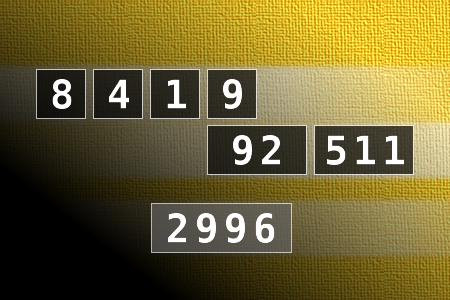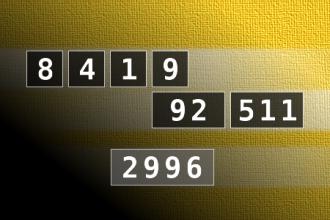Calculate the number 2996
NUMBERMANIA: Calculate the number 2996 using numbers [8, 4, 1, 9, 92, 511] and basic arithmetic operations (+, -, *, /). Each of the numbers can be used only once.Correct answers: 21
The first user who solved this task is Djordje Timotijevic.
#brainteasers #math #numbermania

